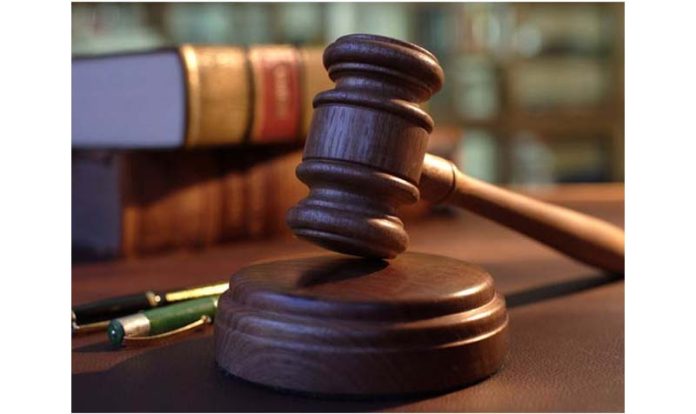NEW DELHI, Jan 3: Courts must refrain from summoning government officials as “first resort” as asking them frequently to appear without a just cause is not permissible, the Supreme Court said on Wednesday and framed standard operating procedure for courts across the country to follow while seeking their presence.
Constantly summoning officials of the government instead of relying on the law officers representing the government runs contrary to the scheme envisaged by the Constitution, it said.
“The appearance of government officials before courts must not be reduced to a routine measure in cases where the government is a party and can only be resorted to in limited circumstances. The use of the power to summon the presence of government officials must not be used as a tool to pressurize the government, particularly, under the threat of contempt,” a bench comprising Chief Justice D Y Chandrachud and Justices J B Pardiwala and Manoj Misra said.
The verdict came on an appeal of the Uttar Pradesh government challenging the Allahabad High Court order by which the Secretary (Finance) and the Special Secretary (Finance) of the state were taken into custody for seeking recall of the orders pertaining to notification of rules for providing domestic servants to retired chief justices and judges of the high court.
“The High Court did not have the power to direct the State Government to notify Rules proposed by the Chief Justice pertaining to post-retiral benefits for former Judges of the High Court. The Chief Justice did not have the competence to frame the rules under Article 229 of the Constitution. Further, the High Court, acting on the judicial side, does not have the power to direct the Government to frame rules proposed by it on the administrative side,” the apex court said while setting aside the high court order.
“The conduct of the High Court in frequently summoning government officials to exert pressure on the government, under the threat of contempt, is impermissible. Summoning officials repeatedly, instead of relying on the law officers representing the government or the submissions of the government on affidavit, runs contrary to the scheme envisaged by the Constitution,” the 31-page judgement penned by the CJI said, and termed the high court’s approach “erroneous”.
It said the standard operating procedure (SOP) will be applicable to all court proceedings involving the government in cases before the Supreme Court, high courts and all other courts acting under their respective appellate and/or original jurisdiction or proceedings related to contempt of court.
The top court directed that its judgement containing the SOP be communicated to the registrar general of every high court.
“Courts must refrain from summoning officials as the first resort. While the actions and decisions of public officials are subject to judicial review, summoning officials frequently without just cause is not permissible. Exercising restraint, avoiding unwarranted remarks against public officials, and recognizing the functions of law officers contribute to a fair and balanced judicial system.
“Courts across the country must foster an environment of respect and professionalism, duly considering the constitutional or professional mandate of law officers, who represent the government and its officials before the courts…,” it said.
One of the directions in the SOP said the court should not direct the presence of an official solely because the official’s stance in the affidavit differs from the court’s view.
In such cases, if the matter can be resolved based on existing records, it should be decided on merits accordingly, the verdict said.
“The power of criminal contempt could not be invoked by the High Court against officials of the Government of Uttar Pradesh on the ground that the application for recall of the First Impugned Order was ‘contemptuous’. The actions of the officials do not meet the standard of both ‘criminal contempt’ and ‘civil contempt’,” it said.
The verdict dealt with the facts of the case and past judgements of the top court, and said there was no iota of doubt that “this Court directed the state governments to frame schemes for post-retiral benefits.”
“The …Judgements of this court did not grant the Chief Justices of High Courts, acting on the administrative side, the power to frame rules about post-retiral benefits for former judges that must mandatorily be notified by the State Governments. Further, the Court recognized the need for flexibility and granted state governments the leeway to duly account for local conditions,” it said.
Such directions by the high court are impermissible and contrary to the separation of powers envisaged by the Constitution, it said.
“The High Court cannot direct the State Government to enact rules on a particular subject, by a writ of mandamus or otherwise,” it said.
The high court, acting on the judicial side, cannot compel the state government to notify the rules proposed by the chief justice in the purported exercise of his administrative powers, it said.
“Policymaking by the government envisages various steps and the consideration of various factors, including local conditions, financial considerations, and approval from various departments. The High Court cannot use its judicial powers to browbeat the State Government to notify the Rules proposed by the Chief Justice,” it said.
On invoking criminal contempt against officials, it said while initiating proceedings of contempt of court, the court must act with great circumspection.
“In the present case, the State of Uttar Pradesh was availing its legitimate remedy of filing a recall application. From a perusal of the record, it appears that the application was filed in a bona fide manner…,” it said. (PTI)


